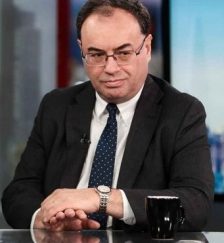 Strong conflict can be observed in the prediction made by Dixit Johsi, who thinks that eliminating the use of LIBOR from the global financial system may present a Herculean task that could be “bigger than Brexit”, and the view espoused by FCA’s boss Andrew Bailey this July in Interest rate benchmark reform: transition to a world without LIBOR who is adamant that the use of the discredited rate must end by 2021. In an earlier speech on the future of LIBOR last July, Bailey stressed the need to transition away from LIBOR and the importance of doing so has not changed. However, Johsi, who is the group treasurer of Deutsche Bank and is also a board member of the International Swaps and Derivatives Association, is of the view that ending the use of LIBOR is a unenviable “mammoth task” which is “bigger than Brexit” on the overall scale of things. In his speech Bailey reiterated the notorious status that LIBOR had attained after the global financial crisis (GFC) prior to which no one knew of its significance in the global marketplace. “Before then it was largely taken for granted, part of the financial landscape,” it how Bailey put it while stressing that the FCA has regulated LIBOR since April 2013 and that significant improvements have been made in its submission and administration. He said that the reforms of recent years had ensured that no further illegality took place but it was equally Bailey’s position that LIBOR must be terminated in its present form because the absence of active underlying markets raises a serious question about the sustainability of the LIBOR benchmarks that are based upon these markets.
Strong conflict can be observed in the prediction made by Dixit Johsi, who thinks that eliminating the use of LIBOR from the global financial system may present a Herculean task that could be “bigger than Brexit”, and the view espoused by FCA’s boss Andrew Bailey this July in Interest rate benchmark reform: transition to a world without LIBOR who is adamant that the use of the discredited rate must end by 2021. In an earlier speech on the future of LIBOR last July, Bailey stressed the need to transition away from LIBOR and the importance of doing so has not changed. However, Johsi, who is the group treasurer of Deutsche Bank and is also a board member of the International Swaps and Derivatives Association, is of the view that ending the use of LIBOR is a unenviable “mammoth task” which is “bigger than Brexit” on the overall scale of things. In his speech Bailey reiterated the notorious status that LIBOR had attained after the global financial crisis (GFC) prior to which no one knew of its significance in the global marketplace. “Before then it was largely taken for granted, part of the financial landscape,” it how Bailey put it while stressing that the FCA has regulated LIBOR since April 2013 and that significant improvements have been made in its submission and administration. He said that the reforms of recent years had ensured that no further illegality took place but it was equally Bailey’s position that LIBOR must be terminated in its present form because the absence of active underlying markets raises a serious question about the sustainability of the LIBOR benchmarks that are based upon these markets.
But since “LIBOR is a public good” regulators were eager to protect the the interests of all involved by sustaining the current arrangements until such time as alternatives are available and transition arrangements are sufficiently well advanced. A proxy LIBOR was discussed. Yet despite the need for a frictionless transition, Bailey is now saying that the time has come to put an end to the use of LIBOR and he therefore stressed that firms should not see phasing out LIBOR as a “black swan” event or a measure of last resort because it is not a “remote probability” and the benchmark’s termination is inevitable. He is pleased with the efforts made to change things thus far but he is not happy about the pace of the transition. The FCA is clear that ensuring that the transition from LIBOR to alternative interest rate benchmarks is orderly will contribute to financial stability and that “misplaced confidence in LIBOR’s survival will do the opposite, by discouraging transition.” Alternatives to LIBOR in the form of SOFR, SONIA, SARON and TONA are already operating globally. The Bank of England has started to publish a reformed and strengthened SONIA. Bailey informed us that it is now supported by an average of 370 transactions per day, compared with 80 before the reform. Read the rest of this entry »


 Asset Land Investment Plc & Anor v The Financial Conduct Authority [2016] UKSC 17 (20 April 2016)
Asset Land Investment Plc & Anor v The Financial Conduct Authority [2016] UKSC 17 (20 April 2016)












